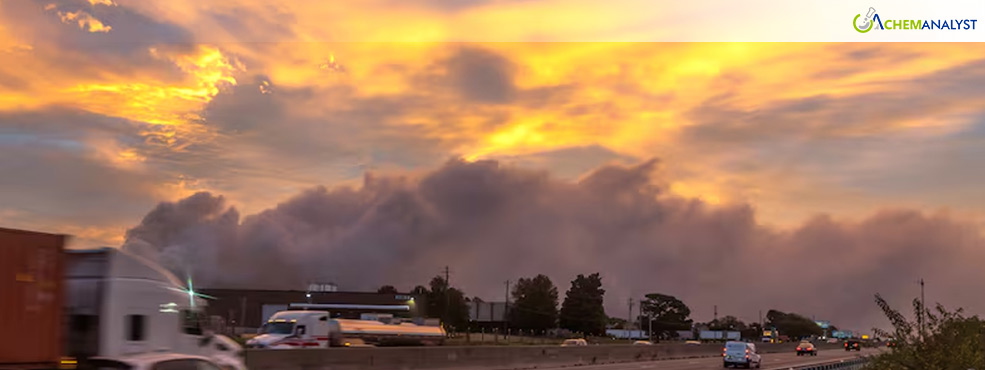Welcome To ChemAnalyst

Federal authorities have released a detailed update regarding the investigation into the fire at BioLab's chemical plant near Atlanta, which produced a toxic chemical cloud and forced thousands of nearby residents to shelter in place. The fires, which began on September 29 at the BioLab facility in Conyers, Georgia, sent thick plumes of orange and black smoke high into the sky, creating significant environmental and health concerns for the surrounding area. The U.S. Chemical Safety and Hazard Investigation Board (CSB) has now provided a timeline and additional information on the incident.
BioLab, a subsidiary of KIK Consumer Products based in Lawrenceville, Georgia, manufactures chemicals designed to kill algae and bacteria in swimming pools and hot tubs. The fire occurred at the company's Plant 12 storage warehouse, which held hazardous chemicals that are reactive to water. The investigation report reveals that the first signs of trouble came early in the morning when an employee conducting a routine fire watch at the warehouse heard a "popping sound" while performing a 5 a.m. check. Upon inspecting the area, the employee found a product that had come into contact with water, causing it to react, though no flames were visible at that moment.
Despite the lack of visible fire, the employee noticed large toxic vapor plumes forming inside the building. Realizing the danger, they immediately called 911 at around 5:10 a.m. to report the issue. As the situation escalated, by 6:30 a.m., flames were visible through the roof, originating from the same area where the chemical reaction occurred. The fire spread rapidly, prompting local authorities to issue the first shelter-in-place order around 7:40 a.m. By 8:10 a.m., Rockdale County firefighters had managed to bring the blaze under control. However, just a few hours later, a second fire broke out at the plant around noon, generating "thick black smoke" and "multicolor plumes," forcing further evacuations from the area.
The fire led to significant structural damage to the facility, with parts of the building collapsing during the blaze. Plant 12, which covered an area larger than five football fields, was entirely destroyed. The building remained an "active emergency response scene" for nearly four weeks, as firefighters and hazardous materials teams continued to address the aftermath of the fires.
In the wake of the disaster, federal investigators learned that BioLab had implemented a permanent fire watch several months prior to the fire after detecting strong odors from oxidizers in some of the storage buildings, including Plant 12. Despite these precautions, the fire quickly escalated beyond control.
In the aftermath, local infrastructure was severely impacted. Interstate 20, which runs parallel to the BioLab facility, was shut down temporarily following the collapse of the building, and smaller surrounding roads remained closed for several more hours. The Rockdale County Emergency Management Agency issued a shelter-in-place order for residents within a two-mile radius of the plant, a measure that lasted until October 17. The smoke from the fire drifted toward Atlanta, creating a haze that smelled strongly of chlorine and causing smog in parts of the city and neighboring areas.
This incident has led to over a dozen lawsuits filed by residents and businesses impacted by the fire and its aftermath. Concerns about the health risks associated with exposure to the chemicals and fumes continue to be a significant issue for local authorities and residents alike. The CSB's investigation remains ongoing, as federal officials work to determine the full cause of the fire and assess whether any safety violations contributed to the disaster.
We use cookies to deliver the best possible experience on our website. To learn more, visit our Privacy Policy. By continuing to use this site or by closing this box, you consent to our use of cookies. More info.
